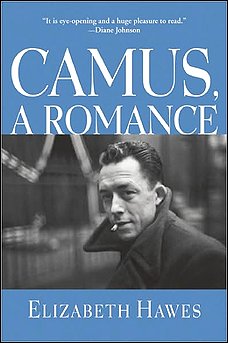Camus, A Romance
Elizabeth Hawes
By
Jesse Kornbluth
Published: Jan 04, 2010
Category:
Biography
On January 4, 1960 — exactly fifty years ago — Albert Camus had a train ticket to Paris in his pocket. But he chose to travel with a friend who drove a Facel-Vega, a car so luxurious and high-powered its ads boasted it was “For the Few Who Own the Finest".
The driver wasn’t speeding. The pavement wasn’t wet. Why the car went off the straight, wide road is a mystery. It hit one tree, smashed into another. Camus, who had been the youngest writer — just 43 — to win the Nobel Prize for Literature, died instantly. He was 46 years old.
I was 14 when Camus died. And I know it sounds pretentious and pseudo, but I mourmed — Camus was my favorite writer. If you have read even the first page of
Reflections on the Guillotine, you will understand why. And even if you don’t get the deeper meanings of
The Stranger and
The Plague, you know how exciting those novels are.
When Camus died, Elizabeth Hawes was 19 — and, like me, in mourning. Only deeper:
I had a photograph of Albert Camus prominently displayed above my desk — the famous Cartier Bresson portrait with the trenchcoat and dangling cigarette. He was a celebrated and sophisticated writer; I was a young and serious French major at one of the eastern academic establishments then known as the Seven Sisters. I was writing an honors thesis on Camus’s work, and in the process I had fallen in love with him…. In my innocence, I was confident that one day I would arrange to meet Camus. After I graduated, I planned to go to Paris, and I imagined that somehow we would have a drink at the Cafe Flore or one of the other Left Bank establishments I had heard about, and that over a cafe filtre or a vin blanc, we would talk for hours.
Because she’s such a fine writer, Hawes creates indelible scenes. You can’t understand Camus without appreciating his childhood, and Hawes is brilliant here. It’s not that she’s uncovered much new; it’s that she piles on the visual details, until we can see this poor boy, living in a small apartment with a widowed mother who was illiterate, partially deaf and largely mute. They had no heat, hot water or oven.
But an attentive teacher saw something in Camus, and helped him. And the tuberculosis that Camus contracted at 17 didn’t quite manage to kill him. And, somehow, he made himself into a writer.
What made him a writer for his time — and, I submit, for ours as well — is the moral concern just under the skin of his characters and on the surface of his essays. This concern has been called “existentialist”, but there’s no reason to smother it in philosophical terms. It’s simple enough:
The austerity of his message — that in a world without hope we must still struggle to survive — spoke to his own despondency and courage; his prose style, direct and unadorned, to his honesty and his efforts to transcend. These qualities…matched up with the Camus of my photos, the handsome young loner with the cigarette, the high furrowed forehead and the sad Mediterranean eyes, the Camus who inspired uncommon devotion.
This devotion gets in the way sometimes. Camus was notoriously unfaithful to his wives. And you can say, “Well, he was kind of a rock star.” You can note that he dreamed of being faithful. Or, like Hawes, you can explain it away as the inevitable result of “a Mediterranean libido". To her credit, she admits her bias: "Sometimes I feel almost like his wife or sister as well as his reader, student, and Boswell, watching over him, worrying about his health or his spirits."
This is a minor quibble. Her exploration of Camus takes her deep into the places and people of his life. Her reading of his work is human and smart. And her sense of his troubles as a writer — well, only another writer really understands.
And she gets the biggest thing right — the connection every devoted reader makes with any writer he/she loves:
If writers only knew, or at least remembered in the solitary travail, what an impact they might have on the psyche of a reader, how with just a random insight or a phrase or even a prose style they can change the course of someone’s life, alter thinking forever.
“He is my writer, I am his reader,” she concludes. If Camus reaches you this way — or might reach you if you knew more about him — this is a thrilling book.
To buy the Kindle edition of “Camus” from Amazon.com,
click here.
To buy “Resistance, Rebellion and Death” from Amazon.com,
click here.
To buy “The Myth of Sisyphus” from Amazon.com,
click here.


